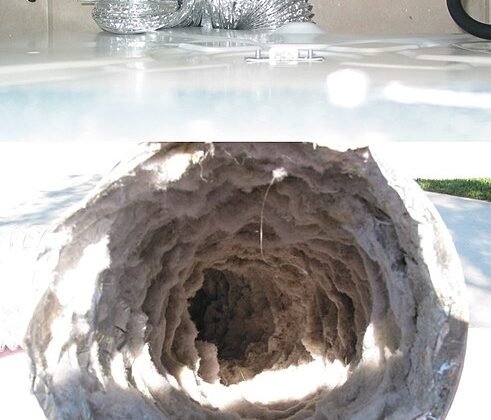Table of Contents Show
Do you have home renovations on your mind?
Maybe it’s time for a new kitchen or bathroom or to spruce up the exterior of your home. Whatever the case may be, home renovation projects can quickly become overwhelming and costly if not properly planned out.

But don’t worry! With this handy guide, we’ll help you plan and budget all projects to get them done right — without breaking the bank.
Create a Home Renovation Plan
The first step in any home renovation project is creating a plan. It will help you visualize the end goal and map out how to get there. Break your project down into smaller steps, and consider what materials and tools you’ll need for each stage.
It’s also important to calculate how much the entire project will cost and set aside that money beforehand. Taking this step prevents nasty surprises (like running out of funds halfway through) and keeps your home renovation budget on track.
Ensure you come up with realistic estimates for each task. Also, allow for a contingency fund if the home renovations take longer or cost more than you’d initially planned.
Hire Professionals for the Job
Hiring professionals is best if your home renovation project is more complex. For example, if you’re dealing with a full-scale kitchen or bathroom remodel. They have the experience and know-how to get the job done quickly, correctly, and within budget.
Plus, hiring professionals will save you time and headaches down the road. Mistakes made during a home renovation can be costly and difficult to fix.
When interviewing contractors, be sure to ask for references and check them thoroughly. Also, make sure the contractor is licensed and insured in case of any accidents.
Beware of contractors who offer a too-good-to-be-true deal. Often, they’re inexperienced and may not complete the project as promised.
Talk to several contractors and understand how they can help you achieve your goals. Negotiate prices, payments, and timelines to find one that works for you.
Read Also:
Set Time and Budget Limits
Creating a timeline is crucial to home renovation success. It will help you stay on track and prevent the project from dragging out over several months or even years.
You’ll also need to set how much money you’re willing to spend on the renovations. Setting these parameters gives your contractor an idea of what’s expected.
When setting up timelines and budgets, remember that unexpected delays may arise. Some work may also need to be redone, so it’s essential to pad the budget for potential setbacks.
Once you’ve set your budget and timeline, it’s essential to stick to them to avoid costly overruns.
You may also want to consider checking out the best deals from stores and online shops to help you offset the cost and save significant money. For example, check if there are available discounts and special deals that can help you stay within budget. Kohl’s amazing coupon offers are just some of the ways you can take advantage of promos for your home renovation project.
Choose the Right Materials
The type of materials you choose will significantly impact the home renovation costs and their lifespan.
For example, opting for cheaper materials may save you money in the short term, but they’ll likely need to be replaced sooner than more expensive options.
When selecting materials, think about how they’ll hold up over time and the ease of maintenance. Also, be sure to choose materials that are in keeping with the style of your home. For example, you don’t want a sleek and modern kitchen in a traditional house.
Talk to your contractor about what types of materials would work best for your specific project. They can help you find affordable yet high-quality options that will last for years.
Reuse Materials Whenever Possible
One way to save money on home renovations is to reuse materials from the existing structure. For example, you can use old bricks for a garden wall or repurpose doors and windows as accent pieces.
Not only does this save you money, but it also reduces the amount of waste produced during the renovation.
Talk to your contractor about any recycled materials you’d like to use in your project. They may find creative ways to incorporate them into the design.
Mix High and Low-End Materials
Using a mix of high and low-end materials is a great way to save money on your home renovation project.
For example, you can use high-end materials for the main areas of the home and low-end materials in less visible spots. This approach will give you the best of both worlds — beautiful, long-lasting results at a fraction of the price.
Your contractor can help you find the right balance of materials to save money without sacrificing quality.
Consider Adding Value to Your Home
Are you thinking about selling your home in the future? Then you must add value to your home with each renovation project.
For example, adding an outdoor kitchen or extra bathroom could give buyers more reasons to choose your home over others on the market.
Talk to a real estate agent and get some home renovation ideas that will improve the resale value of your home. They can help ensure each addition has maximum impact without costing too much money upfront.
Get a Home Renovation Loan
A home renovation loan might be a good idea as the costs add up. A home renovation loan can help cover the cost of expensive additions, like a new roof.
Interest rates on these loans are often lower than other mortgage or business loans, making them an affordable option for many homeowners. If you need some extra funds to complete your project, speak with several lenders before deciding about financing options.
Do Home Renovations the Right Way
Are you thinking about doing a few home renovations? Use the framework from this guide to plan out and budget projects, so they’re a resounding success!
We hope you found this post helpful! To get more tips, keep following our blog.









